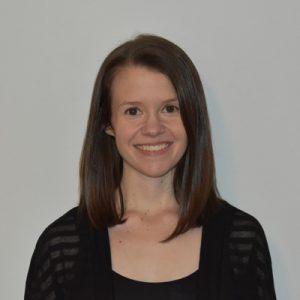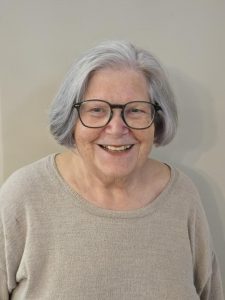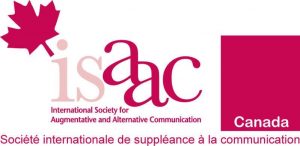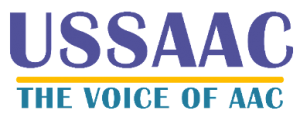ISAAC has, over the course of the past number of years, developed a significant capacity to host informative and well-attended webinars. This has been done in close collaboration with our friends and partners at both ISAAC-US (USSAAC), AAIDD and, more recently, ISAAC-Canada.
Webinars
ISAAC hosts many informative and well-attended webinars each year.
Registration for live webinars is open to everyone.
All webinars, unless otherwise indicated, are recorded and will be made available for later viewing. Most are archived for members only. You can see the members only archive here.
Become a member of ISAAC to watch all of ISAAC’s webinars!
Upcoming webinars
Communication Intermediaries – Access to Justice for those with Communication Disabilities
February 17, 2026
7:00 – 8:00 pm EST

Presented by: Caitlin Buchel, RSLP
About the presenter:
Caitlin Buchel is a registered Speech-Language Pathologist (SLP), Communication Intermediary (CI), and founder/Executive Director of Communication Access to Justice (CAJust) which is a national non-profit organization that promotes access to the justice system – including police, corrections, and courts – for people who have speech, language and/or cognitive disabilities. CAJust trains, supports, and publishes a national list of Communication Intermediaries (CIs) who neutrally intermediate between, victims, witness, accused persons, and justice professional. She lives and works in Manitoba.
Webinar description:
Individuals who use AAC (and those who support them) face unique barriers when interacting with the justice system in Canada. The role of Communication Intermediary (CI) has emerged as a neutral officer of the court to address these systemic barriers. The CI’s responsibility is to ensure that necessary accommodations are in place to allow the Court to hear the best evidence of individuals who use AAC (and/or identify with communication disabilities). The process of working with a CI and how to access this accommodation in the Canadian justice system is also discussed.
Webinar Objectives:
- Briefly discuss some of the challenges and barriers faced by individuals with self-identified communication disabilities when navigating the justice system
- Define the term Communication Intermediary (CI) and the CI’s role in the Canadian justice and policing system
- Explain the process of working with a Communication Intermediary
- How to Access a Communication Intermediary in Canada
Disclosures
- I own and manage a private speech-language pathology practice in Winnipeg, Manitoba, of 20 SLPs. I personally do a small amount of communication intermediary work in Manitoba upon referral.
- All of my work to date as the Executive Director of CAJust has been on a volunteer basis.
To register for this webinar please go to the following link:
https://us06web.zoom.us/webinar/register/WN_LgUZKRQwSYiNGNegkg3JeQ
Please note: Only the first 150 attendees to log into the webinar will be guaranteed spots.
Utilization of a Single Preferred AAC System in US Schools
February 18, 2026
7:00-8:00 p.m. EDT
 |
 |
Presented by: Jill E. Senner and Amy S. Goldman
About the presenters:
Jill E. Senner, PhD, CCC-SLP, has over 25 years of experience working with children with complex communication needs. She is the owner and director of Technology and Language Center where she specializes in providing augmentative and alternative communication (AAC) services via telepractice. Dr. Senner presents lectures on AAC topics online and around the world and has published research articles and textbook chapters on AAC.
Throughout her long career as a speech-language pathologist, Amy S. Goldman, M.S., CCC-SLP, has been a vigorous advocate for people with complex communication needs who use, or who can benefit from, AAC. A nationally and internationally known presenter, she currently serves as Past President of the United States Society for Augmentative and Alternative Communication (USSAAC). She is a Strand Advisor and Subject Matter Expert on AAC for the Assistive Technology Industry Association (ATIA). Previously she was chair of the steering committee of the American Speech-Language-Hearing Association’s (ASHA) Special Interest Group on AAC and represented ASHA on the National Joint Committee for the Communication Needs of Persons with Severe Disabilities (NJC).
Seminar description:
Children who use augmentative and alternative communication (AAC) are a heterogenous group with differing needs and skills. In fact, there is no typical person who relies on AAC. AAC is determined based on a comprehensive, person-focused assessment. The use of a single preferred communication book, board, app, or device across an entire US school or district is becoming a frequent topic of discussion on social media, however little is known about this practice. During this seminar, results of a recent study will be shared including: 1) When a single preferred communication book, board, app or device is adopted by a school or district, how does frequency of input from other stakeholders compare to when a single preferred system is not used; 2) When a single preferred communication book, board, app or device is used are data collected?; and 3) When a single preferred communication book, board, app or device is adopted by a school or district, are criteria specified and what criteria are used to determine which students receive which levels of support?
Moderated by: Betsy Caporale
SLPs who are USSAAC/ISAAC members may have their participation in this webinar reported for ASHA CEUs at no charge. Non-members must pay a $25 reporting fee.
This course is offered for 0.10 ASHA CEUs (Introductory level; Professional area).
Participants will be able to:
- Describe historical AAC assessment processes.
- List the stakeholders typically involved in AAC assessments.
- Summarize the practices being used in schools that use single preferred AAC systems.
Time ordered agenda:
5 minutes: Introduction of Speakers, USSAAC and topic
10 minutes: Literature and Review
10 minutes: Methods and Participants
10 minutes: Results
15 minutes: Discussion, Practical Implications, Limitations, Future Research
10 minutes: Q & A
American Speech-Language-Hearing Association (ASHA) CEUs in speech-language pathology and audiology are awarded by the ASHA CE Registry upon receipt of the CEU Participant Form from the ASHA Approved CE Provider, USSAAC. CEU Participant Forms are available online at Registration or via the QR Code displayed during the presentation. ASHA CEUs are provided to full registrations. This program is offered for .10 ASHA CEUs (Introductory Level, Professional Area). Participants must stay for the entire presentation and complete the questionnaire at the end of the webinar.
ASHA Disclosures:
Speakers
Financial:
Jill Senner receives a salary from Technology & Language Center, PC
Amy Goldman has no Financial Disclosures to report
Non-Financial
Jill Senner and Amy Goldman are both members of USSAAC and serve on the USSAAC Research Committee. (This study was supported by the USSAAC research committee.)
Moderator
Financial: Betsy Caporale has no financial disclosures to report.
Nonfinancial: Betsy Caporale is a USSAAC board member and chairs the Education Committee.
To register for this webinar please go to the following link:
https://us06web.zoom.us/webinar/register/WN_dzJ1BheCRfCbGVcGIoxIow
Please note: Only the first 150 attendees to log into the webinar will be guaranteed spots.
USSAAC EDUCATION COMMITTEE:
Amy Bereiter, Betsy Caporale, Kate DeJarnette, Nicole Gallagher, Richard Hurtig,
Michelle Phillipy, Wendy Quach, Sharon Redmon
Information about ISAAC webinars
Important Update:
Beginning in January 2021, the majority of archived webinars will be moved to a new location in the Members Only area portion of our website. (A number of webinars will continue to be publicly available here.)
What this change means is that now only members will be able to access the majority of our archived webinar recordings.
Registration for the majority of upcoming new webinars will be available from within the Members Only area, and a valid ISAAC member ID number will need to be entered at time of registration.
It is our hope that many of the people who have benefited from attending or viewing our webinars will become members of ISAAC in order to continue to enjoy this significant membership benefit.
For information on becoming a member of ISAAC, click here.
Thank you!
Information on ASHA CEUs for USSAAC webinars can be found on the USSAAC website, here
To request from ISAAC International a hosted or sponsored webinar, please return this form-fillable PDF with details of your proposed webinar and preferred time slot, to franklin@isaac-online.org.
Please note: A copy of the form MUST first be downloaded and saved to your local computer prior to completing.

